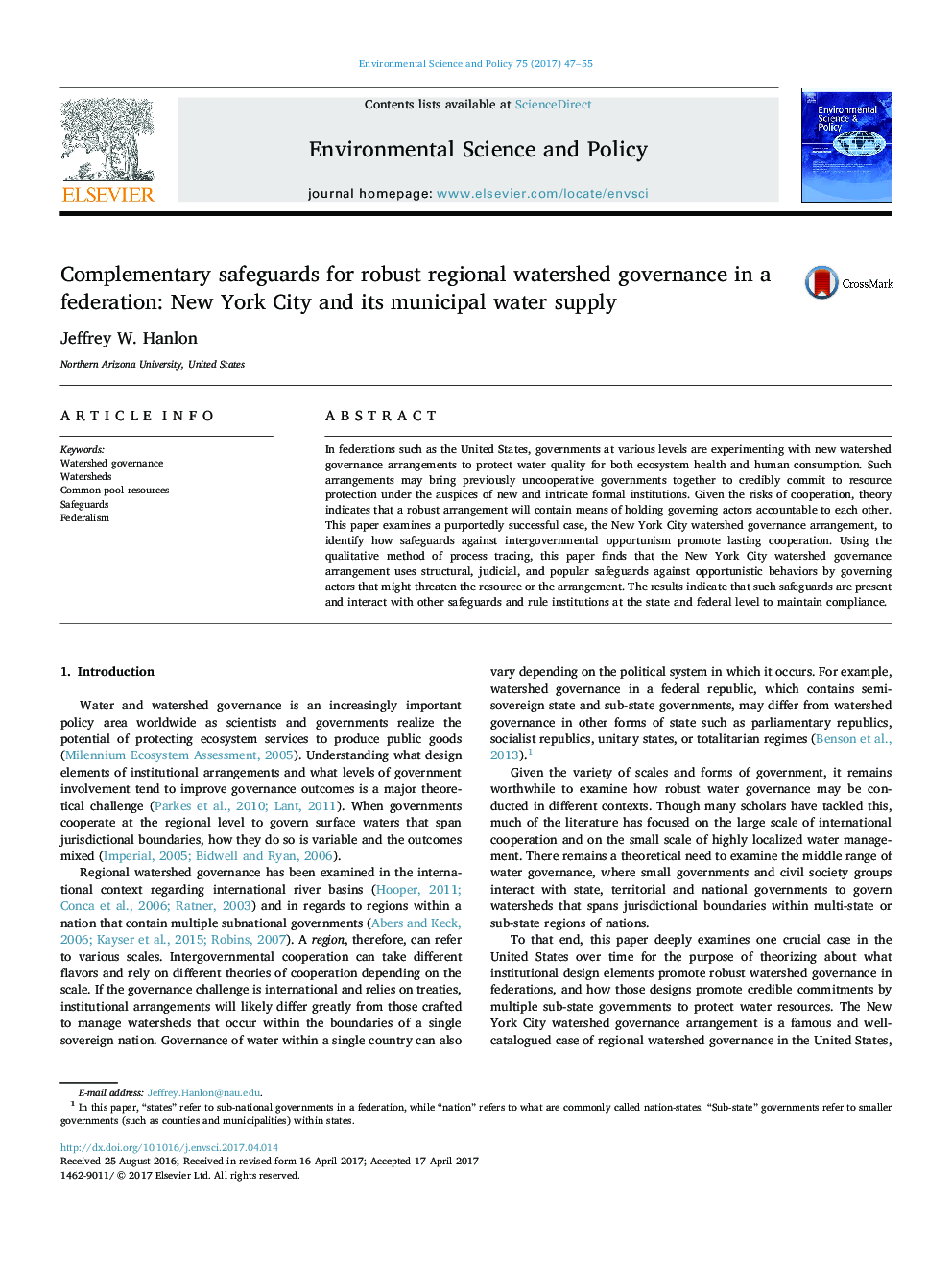| Article ID | Journal | Published Year | Pages | File Type |
|---|---|---|---|---|
| 5115791 | Environmental Science & Policy | 2017 | 9 Pages |
Abstract
In federations such as the United States, governments at various levels are experimenting with new watershed governance arrangements to protect water quality for both ecosystem health and human consumption. Such arrangements may bring previously uncooperative governments together to credibly commit to resource protection under the auspices of new and intricate formal institutions. Given the risks of cooperation, theory indicates that a robust arrangement will contain means of holding governing actors accountable to each other. This paper examines a purportedly successful case, the New York City watershed governance arrangement, to identify how safeguards against intergovernmental opportunism promote lasting cooperation. Using the qualitative method of process tracing, this paper finds that the New York City watershed governance arrangement uses structural, judicial, and popular safeguards against opportunistic behaviors by governing actors that might threaten the resource or the arrangement. The results indicate that such safeguards are present and interact with other safeguards and rule institutions at the state and federal level to maintain compliance.
Related Topics
Physical Sciences and Engineering
Energy
Renewable Energy, Sustainability and the Environment
Authors
Jeffrey W. Hanlon,
